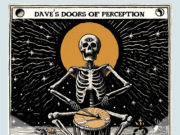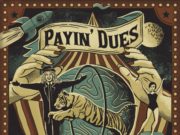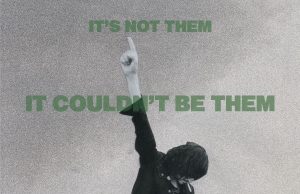This came out in 2002 – or at least that’s when I got it. Here’s what I said about it back then (with some minor editing):
Frank Sinatra invented it back in the ’50s with In The Wee Small Hours. Bob Dylan, Marvin Gaye and Fleetwood Mac updated it for the ’70s with Blood On The Tracks, Here, My Dear and Rumours. Folkies Richard and Linda Thompson did it together in the ’80s with Shoot Out The Lights. Even ’90s ska-punks like No Doubt got into the act with Tragic Kingdom.
I’m talking, of course, about the musical entity known as the Breakup Album. Over the decades since Frank first poured out his heart to Ava Gardner on a set of lovelorn ballads, the concept has practically become a rite of passage for singers and songwriters. All the greats above, and plenty more besides — John Lennon, George Jones and Bruce Springsteen, to name just a few — have spent some time singing the blues down at the end of lonely street.
Now you can add Beck’s name to the register at Heartbreak Hotel. A while back, the eclectic and eccentric L.A. troubadour supposedly split with his longtime love. And like many a great songwriter before him, Beck has pinned his heart to his sleeve, set his diary to music and put out an album that allows us to feel his pain. The beautifully bleak Sea Change, like its title, pulls a complete 180 from the kitschy funk and audacious white mack-daddy soul of 1999’s Midnite Vultures.

I should note here that, on the surface at least, this kind of turnabout is par for the course for the Beckster. Hot on the heels of the bizarro junk-culture folk-hop of 1993’s Mellow Gold, he released the darkly gothic folk of One Foot In The Grave; likewise, the zippy pop magnificence of 1996’s Odelay was followed by the subdued and sombre Mutations. Still, none of those previous efforts came across as honestly and desperate as Sea Change. Put it this way: When Beck sang, “I’m a loser, baby, so why don’t you kill me?” before, you knew he was kidding. Now you’re not always so sure.
It’s obvious from the first minutes of Sea Change that Beck has had the wind knocked out of his sails. “These days I barely get by,” he sadly admits on The Golden Age. “I don’t even try.” It’s a lyrical sentiment that permeates every one of these dozen tracks, whose titles — Paper Tiger, Guess I’m Doing Fine, Lonesome Tears, Lost Cause, End Of The Day, It’s All In Your Mind, Already Dead and so on — let you know he’s got more serious topics in mind than a Devil’s Haircut.
The music for these tracks reflects Beck’s lyrical mood. Obviously influenced by his recent collaborations with atmospheric electronica outfit Air, this 50-minute disc is an understatedly gorgeous blend of mournful country-rock, brooding pop and baroque psychedelia. Drumbeats are minimal, gently nudging along grooves that seldom move faster than a sluggish trudge. Sweet keyboards, grand strings and eerie effects drape the minor-key melodies like dark clouds gathering on the horizon. And behind the board, producer Nigel Godrich — architect of both Radiohead’s Amnesiac and Beck’s own Mutations — fashions a genuinely moving, strikingly intimate work of confession and longing that echoes the finest work of Nick Drake or Tim Buckley.
Sinatra may have invented it. Dylan, Marvin and plenty of others may have handled it admirably. But with Sea Change, Beck just may have perfected the Breakup Album.










































